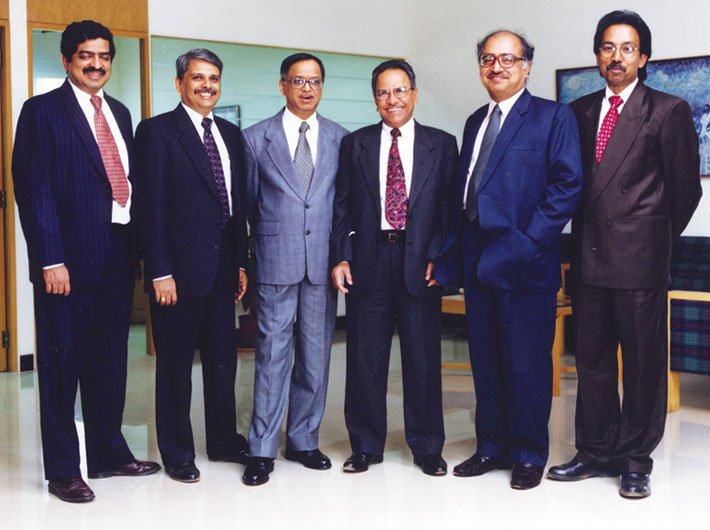Infosys chooses an outsider pro to lead it through transition.
Infosys Technologies, a bellwether firm for India’s infotech sector that is making waves across the globe, has defied the traditions of the domestic sector at the best of times. So, as it goes through a transition, it has continued to set what could be new trends.
On June 12, its executive chairman NR Narayana Murthy decided to step aside, and the company named Vishal Sikka as its CEO. What was significant is that the baton was passed on to an outsider professional for the first time since the company’s inception in 1981.
A group of IITians – Narayana Murthy, Nandan Nilekani, NS Raghavan, S Gopalkrishnan, SD Shibulal, K Dinesh and Ashok Arora – who founded the company have taken turns in various roles in running it, but in the face of mounting challenges decided to let the former SAP chief technology officer do the job.
Also read: Sikka at helm, it's time to hit the Refresh key at Infy
During Narayana Murthy’s second term his son Rohan Murthy was appointed his executive assistant, triggering speculation over his future role. At most other Indian firms, Rohan’s further elevation might have been taken for granted, but at Infosys, he will be moving out now that his father is only a non-executive chairman.
Analysts believe this could be a fresh start for Infosys.
Sanchit Vir Gogia, chief analyst and CEO, Greyhound Research, says, “I believe India Inc is moving up the ladder to add value to their business. A business needs a team of leaders; it cannot be run by one person. The leader needs to be professionally sound to lead the company. I see the baton moving from family to professionals with a business sense.”
Harish Bijoor, brand expert and CEO, Harish Bijoor Consults Inc., concurs, “This surely is the trend. Founders and owners reach a glass ceiling all their own. This glass ceiling occurs at different points of time. In the case of Infy it has taken 33 years. This should have happened earlier.”
Although there have been instances of professional CEOs in family-run enterprises, for example at Dabur, Thermax, Jindal Steel and Power, Wipro and some of the Tata Group firms, “Vishal’s appointment is a learning that various other companies will implement in the coming years. Innovation is the key that every company needs to remember. It should be the core competency of any company,” experts believe.
While some look at it from the perspective of an insider-outsider debate, others say the appointment should be seen purely in business sense.
Ganesh Natarajan, vice chairman and CEO, Zensar Technologies, says, “India Inc is run by an assortment of CEOs – some are from families and many are independent professionals. I do not think the second- or third-generation family CEOs are in any way inferior to professionals and every board and shareholder group should look at the CEO appointment on individual merit.”
As for Sikka, there is unanimity in industry that he is a true innovator and thought leader, and that his contributions at SAP have been extraordinary. Experts feel if Sikka can deliver and give a new vision to Infosys, many family-run firms too may consider bringing in professionals at the top.
“I believe it is only a matter of time that these companies consider getting a professional rather than passing on the baton to the next family member,” says Gogia.
(This story appeared in the July 1-15, 2014 issue of the print issue)

